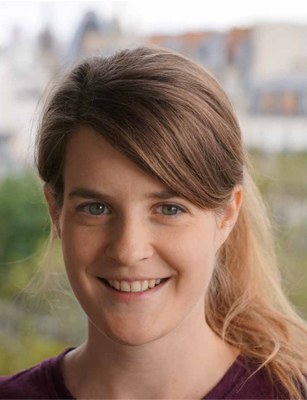Monika Aidelsburger - Ludwig-Maximilians University Munich
Quantum Optics and Photonics (Q)
|
 © Monika Aidelsburger |
Research Agenda: My research group focuses on analog quantum simulations of many-body physics with ultracold atoms in optical lattices. The high degree of control achieved in these experiments and the excellent decoupling from the environment enables controlled simulations of fundamental questions regarding e.g. the thermalization of isolated quantum systems. While generically they are expected to thermalize, there exists a large variety of many-body systems that exhibit more complex behavior, such as many-body localization or Hilbert-space fragmentation. Moreover, by making use of the controllability of cold-atom systems, we can engineer novel model Hamiltonians based on periodic driving (Floquet engineering), that allow us to realize and study topological lattice models, such es the Haldane or the Hofstadter model. Adding local control provided by optical tweezers we are further planning to extend our toolbox in order to explore the physics of lattice gauge theories to study phenomena related to QED.
Short Bio: I received my PhD in 2015 on "Artificial gauge fields with ultracold atoms in optical lattices" in the group of Prof. Immanuel Bloch at LMU in Munich. After a postdoc position at Collège de France in Paris in the group of Prof. Jean Dalibard, where we studied out-of-equilibrium phenomena with uniform Bose gases, I returned to LMU as a group leader in 2017. In 2018 I successfully applied for an ERC Starting grant from the European Union and since 2019 I am a tenure-track professor for Synthetic Quantum Matter at LMU. The main goal of my ERC project is the simulation of lattice gauge theories coupled to fermionic matter with ultracold Yb atoms.